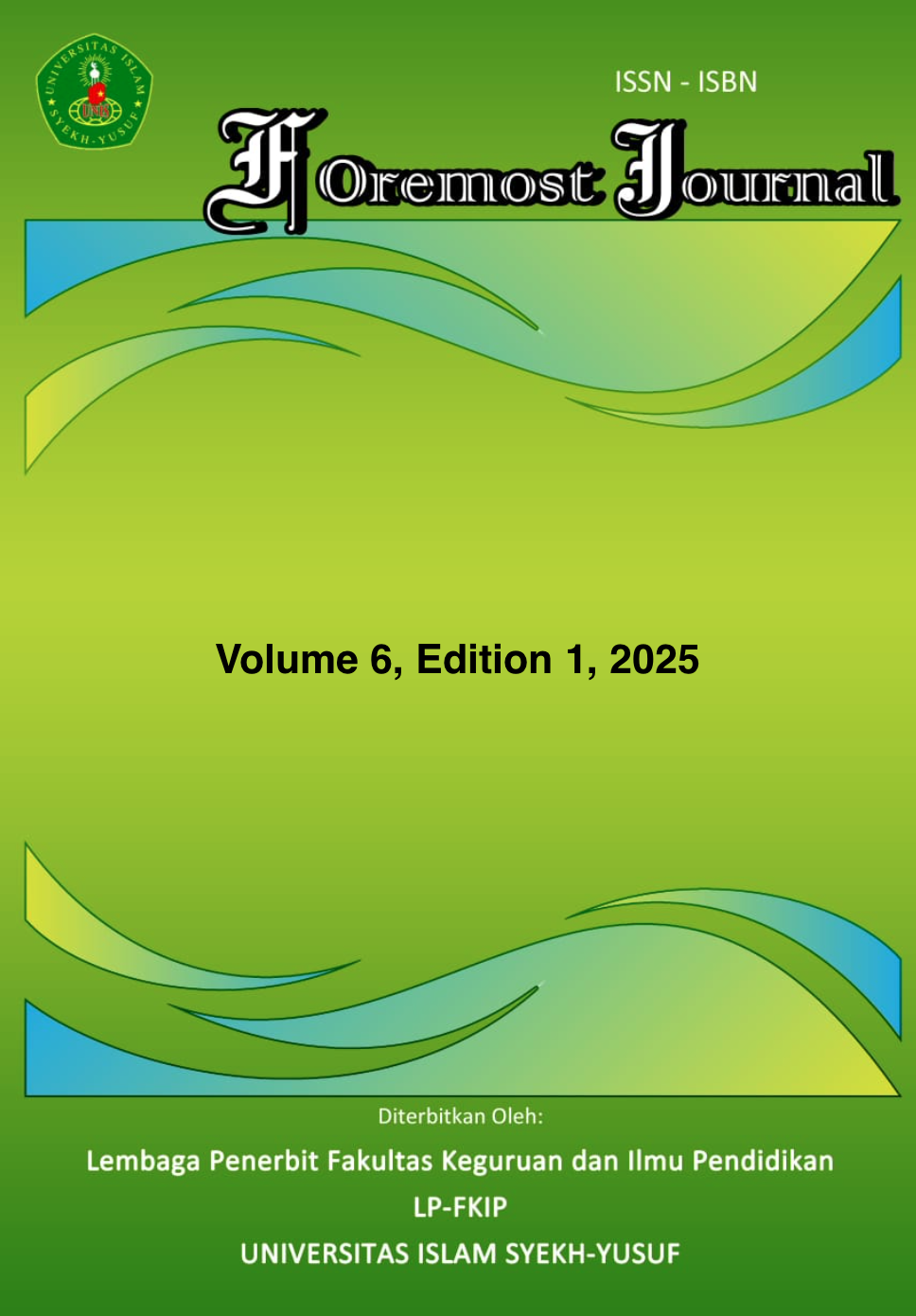The Assessment for Learning Practices of Project-Based Learning in the English Research Class
DOI:
https://doi.org/10.33592/foremost.v6i1.6872Keywords:
Project-Based learning, Assessment practices in ELTAbstract
Research on Assessment practices in ELT of Project Based Learning approach is increasing because it is considered effective in creating a learning environment that is oriented towards continuous improvement. To get satisfactory results, the researcher decided to identify how one of the ELT lecturers at Esa Unggul University conducts assessment by implementing Assessment for Learning in Project Based Learning by focusing this research on the research method class because the class applies the Project Based Learning approach. The research was conducted by analyzing teaching documents in the form of 1 syllabus and project guidebook of 49 pages, then observing 3 videos of lecturers during class teaching based on 14 indicators and finally analyzing interview transcripts with lecturers consisting of 14 questions. The results of the study identified that lecturers overall implemented and practiced the types of Feedback and Questioning, but lecturers still rarely and slightly involved the use of Self-Assessment and Peer Assessment as indicators of student assessment.
Downloads
Published
How to Cite
Issue
Section
License
Copyright (c) 2025 Foremost Journal

This work is licensed under a Creative Commons Attribution-NonCommercial-ShareAlike 4.0 International License.
- Authors certify that the work reported here has not been published before and contains no materials the publication of which would violate any copyright or other personal or proprietary right of any person or entity.
- Authors transfer or license the copyright of publishing to Foremost Journal to publish the article in any media format, to share, to disseminate, to index, and to maximize the impact of the article in any databases.
- Authors hereby agree to transfer a copyright for publishing to Foremost Journal a Publisher of the manuscript.
- Authors reserve the following:
- all proprietary rights other than copyright such as patent rights;
- the right to use all or part of this article in future works of our own such as in books and lectures;
- use for presentation in a meeting or conference and distributing copies to attendees;
- use for internal training by author's company;
- distribution to colleagues for their research use;
- use in a subsequent compilation of the author's works;
- inclusion in a thesis or dissertation;
- reuse of portions or extracts from the article in other works (with full acknowledgement of final article);
- preparation of derivative works (other than commercial purposes) (with full acknowledgement of final article); and
- voluntary posting on open web sites operated by author or author’s institution for scholarly purposes, but it should follow the open access license of Creative Common CC BY-NC-SA License.



